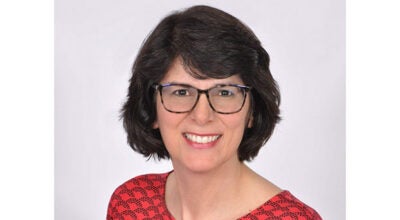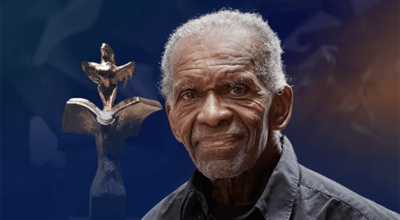Students bring Middle East to Niles-Buchanan Rotary
Published 9:24 am Wednesday, July 29, 2015

Leader photo/MICHAEL CALDWELL
Sahar Al-Zubadi, an Iraqi student visiting as part of the Study of the U.S. Institute, talks to the Rotary Club about female leadership in her home country.
During her presentation to the Niles-Buchanan Rotary Club Tuesday, Sahar Al-Zubadi had a simple message for Americans.
Wearing an eloquently decorated hijab and a T-shirt with the words “All Monsters are Human,” the young woman stood in front of a crowd of business professionals and their guests and said, “Thank you for bringing peace to our country.”
Al-Zubadi is an Iraqi student participating in the Study of the U.S. Institute, a program through the U.S. Department of State’s Global Women Leaders Institute. Saint Mary’s College in Notre Dame, Indiana, has hosted the program for four years as part of a broader state department initiative to promote a better understanding of the U.S. in countries overseas in hopes of developing strong female leaders.
Twenty undergraduate students from Egypt, Iraq, Tunisia and Jordan, as well as six Saint Mary’s students, have been participating in the program since the beginning of July, traveling to key cities like Chicago and Detroit and educating people in the area about their countries at presentations like the ones at the Rotary Club’s meeting.
“The people here are amazingly nice,” Al-Zubadi said. “The news [in Iraq] portrays Americans as the enemy, but they treat you like family.”
The 21-year-old English literature student said she was afraid to take the trip to America, and her parents were concerned about her staying with a host family, but she was pleasantly surprised by the hospitality.
Students gave presentations to the club about their home countries, each explaining popular food, cultural activities and tourist destinations before detailing the role of female leaders in the government.
Baraa Zawaideh, a 22-year-old electrical engineering student from Jordan, said she has been surprised by the low number of females in political leadership in the United States.
“It’s better than a lot of places, but it’s one of the highest percentages in the world and still not over 5 percent,” she said.
At home, Zawaideh is a board chair for the Institute of Electrical and Electronics Engineers, and focuses on spreading knowledge about renewable energy.
“We work with girls in rural areas to transfer our education and skills to help improve their skills,” she said. “We talk to them about women’s rights, and we tell them, ‘Don’t wait for the government to give you more rights. Take them.’”
The students from Jordan were proud to detail the efforts of their country’s leader, Queen Rania, and explained how she has paved the way for other women to take stronger roles in the country.
Tunisian students discussed the change in their government, which became a democracy in 2011. Egyptian students explained that despite historical female leadership in their country, women still face the same struggles as females all over the world when it comes to gender equality.
Students from Iraq, who concluded the presentations, were happy to report that their government is improving following the death of Saddam Hussein.
“Politics and government in Iraq is the reason why Iraq is famous,” Al-Zubadi said. “It’s so sad, but it’s reality. Iraq is a great country and I will sacrifice everything I have to give for peace.”
The students will remain in Michiana until Friday, at which point they will return to their home countries to share the lessons they learned while working with other Middle Eastern students and Americans with fellow students at home.






